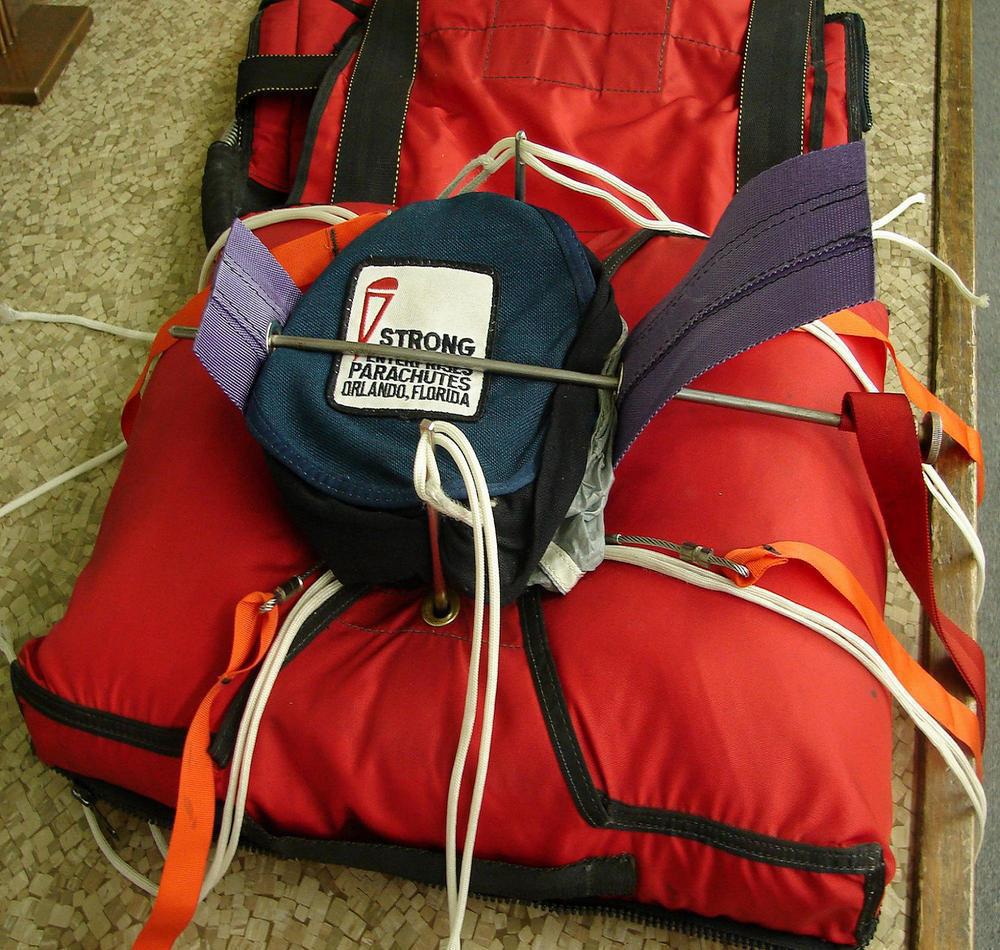Recommended Posts
namgrunt 0
..
LAST MIL. JUMP VIET-NAM(QUAN-TRI)
www.dzmemories.com
Mother to the cutest little thing in the world...
Quote
Supervisors (ESTJ)
Protectors (ISFJ)
Inspectors (ISTJ)
Providers (ESFJ)
So, the common letters here are S (2nd character) and J (4th character). I know that J's are most comfortable once the decision has been made, as opposed to P's who like to keep all of their options open for as long as possible.
The I/E divide (1st character) was well described by wmw999. Which one best describes you during your normal day? These things can change based on conditions, i.e., stress.
The T/F divide (3rd character) is described here:
http://typelogic.com/faq.html:
Quote
T -- Thinking: Making decisions impersonally. In Jung's typology, thinking is a rational function. Thinking's opposite is Feeling.
F -- Feeling: Making decisions from a personal perspective. In Jung's typology, feeling is a rational function. Feeling's opposite is Thinking.
Quote
ISFJ
Cool! Thanks for sharing with us!
I wonder if that's a common trait among military people?
Quote
Promoters (ESTP)
Composers (ISFP)
Crafters (ISTP)
Performers (ESFP)
So, the common letters are S (2nd character) and P (4th character).
The I/E divide (1st character) is best described by wmw999's reply
Quote
The I/E to me is best described or intuited by figuring out if your energy is drained or recharged by being with people and in social situations. It is one of the ones that often changes with maturity. Whether you're able to deal with people or comfortable with them isn't as much a factor.
The T/F divide (3rd character) is described here:
http://typelogic.com/faq.html:
Quote
T -- Thinking: Making decisions impersonally. In Jung's typology, thinking is a rational function. Thinking's opposite is Feeling.
F -- Feeling: Making decisions from a personal perspective. In Jung's typology, feeling is a rational function. Feeling's opposite is Thinking.
Genn 0
http://www.typelogic.com/istp.html
Like their fellow SPs, ISTPs are fundamentally Performers (note the capital 'P' :-)), but as Ts their areas of interest tend to be mechanical rather than artistic like those of ISFPs, and unlike most ESPs they do not present an impression of constant activity. On the contrary, they lie dormant, saving their energy until a project or an adventure worthy of their time comes along--and then they launch themselves at it. The apparently frenzied state that inevitably ensues is actually much more controlled than it appears--ISTPs always seem to know what they're doing when it comes to physical or mechanical obstacles--but the whole chain of events presents a confusing and paradoxical picture to an outsider.
ISTPs are equally difficult to understand in their need for personal space, which in turn has an impact on their relationships with others. They need to be able to "spread out"--both physically and psychologically--which generally implies encroaching to some degree on others, especially if they decide that something of someone else's is going to become their next project. (They are generally quite comfortable, however, with being treated the same way they treat others--at least in this respect.) But because they need such a lot of flexibility to be as spontaneous as they feel they must be, they tend to become as inflexible as the most rigid J when someone seems to be threatening their lifestyle (although they usually respond with a classic SP rage which is yet another vivid contrast to their "dormant," impassive, detached mode). These territorial considerations are usually critical in relationships with ISTPs; communication also tends to be a key issue, since they generally express themselves non-verbally. When they do actually verbalize, ISTPs are masters of the one-liner, often showing flashes of humor in the most tense situations; this can result in their being seen as thick-skinned or tasteless.
Like most SPs, ISTPs may have trouble with rote and abstract classroom learning, which tend not to be good measures of their actual intelligence. They tend, sometimes with good reason, to be highly skeptical of its practical value, and often gravitate towards classes in industrial arts; part-time vocational/ technical programs can be useful to even the college-bound ISTP. In terms of careers, mechanics and any of the skilled trades are traditional choices, and those ISTPs with strong numerical as well mechanical gifts tend to do extremely well in most areas of engineering. Working as paramedics or firefighters can fulfill the ISTP need to live on the edge; they are at their best in a crisis, where their natural disregard for rules and authority structures allows them to focus on and tackle the emergency at hand in the most effective way.
ISTPs with more sedate careers usually take on high-risk avocations like racing, skydiving, and motorcycling. While aware of the dangers involved, they are so in touch with the physical world that they know they can get away with much smaller safety margins than other types.
Idealists, as a temperament, are passionately concerned with personal growth and development. Idealists strive to discover who they are and how they can become their best possible self -- always this quest for self-knowledge and self-improvement drives their imagination. And they want to help others make the journey. Idealists are naturally drawn to working with people, and whether in education or counseling, in social services or personnel work, in journalism or the ministry, they are gifted at helping others find their way in life, often inspiring them to grow as individuals and to fulfill their potentials.
Idealists are sure that friendly cooperation is the best way for people to achieve their goals. Conflict and confrontation upset them because they seem to put up angry barriers between people. Idealists dream of creating harmonious, even caring personal relations, and they have a unique talent for helping people get along with each other and work together for the good of all. Such interpersonal harmony might be a romantic ideal, but then Idealists are incurable romantics who prefer to focus on what might be, rather than what is. The real, practical world is only a starting place for Idealists; they believe that life is filled with possibilities waiting to be realized, rich with meanings calling out to be understood. This idea of a mystical or spiritual dimension to life, the "not visible" or the "not yet" that can only be known through intuition or by a leap of faith, is far more important to Idealists than the world of material things.
Highly ethical in their actions, Idealists hold themselves to a strict standard of personal integrity. They must be true to themselves and to others, and they can be quite hard on themselves when they are dishonest, or when they are false or insincere. More often, however, Idealists are the very soul of kindness. Particularly in their personal relationships, Idealists are without question filled with love and good will. They believe in giving of themselves to help others; they cherish a few warm, sensitive friendships; they strive for a special rapport with their children; and in marriage they wish to find a "soulmate," someone with whom they can bond emotionally and spiritually, sharing their deepest feelings and their complex inner worlds.
Idealists are rare, making up between 20 and 25 percent of the population. But their ability to inspire people with their enthusiasm and their idealism has given them influence far beyond their numbers.
- Ruben Blades, "Adan Garcia"
2fat2fly 0
Rebecca 0
QuoteYou mean Myers-Briggs?

I'm an ENTP. I've taken the full test and that's how it always comes out. I'm a recovering ENTJ, though...
I'm ESFP, heavy on the Extroversion, solidly Sensing, right in the middle on Feeling and Thinking, and highly Perceiving.
I think of 3 guys I've dated seriously who were ENTJ. I think it's the J that I'm incompatible with...
you've got to ask yourself one question: 'Do I feel loquacious?' -- well do you, punk?
skytash 0
Quote
Guardians are the cornerstone of society, for they are the temperament given to serving and preserving our most important social institutions. Guardians have natural talent in managing goods and services--from supervision to maintenance and supply--and they use all their skills to keep things running smoothly in their families, communities, schools, churches, hospitals, and businesses.
Guardians can have a lot of fun with their friends, but they are quite serious about their duties and responsibilities. Guardians take pride in being dependable and trustworthy; if there's a job to be done, they can be counted on to put their shoulder to the wheel. Guardians also believe in law and order, and sometimes worry that respect for authority, even a fundamental sense of right and wrong, is being lost. Perhaps this is why Guardians honor customs and traditions so strongly--they are familiar patterns that help bring stability to our modern, fast-paced world.
Practical and down-to-earth, Guardians believe in following the rules and cooperating with others. They are not very comfortable winging it or blazing new trails; working steadily within the system is the Guardian way, for in the long run loyalty, discipline, and teamwork get the job done right. Guardians are meticulous about schedules and have a sharp eye for proper procedures. They are cautious about change, even though they know that change can be healthy for an institution. Better to go slowly, they say, and look before you leap.
Guardians make up as much as 40 to 45 percent of the population.
The Four types of Guardians are:
Supervisors (ESTJ) | Protectors (ISFJ) | Inspectors (ISTJ) | Providers (ESFJ)
tash




thats what actually came up on mine
My Life ROCKS!
How's yours doing?
Share this post
Link to post
Share on other sites